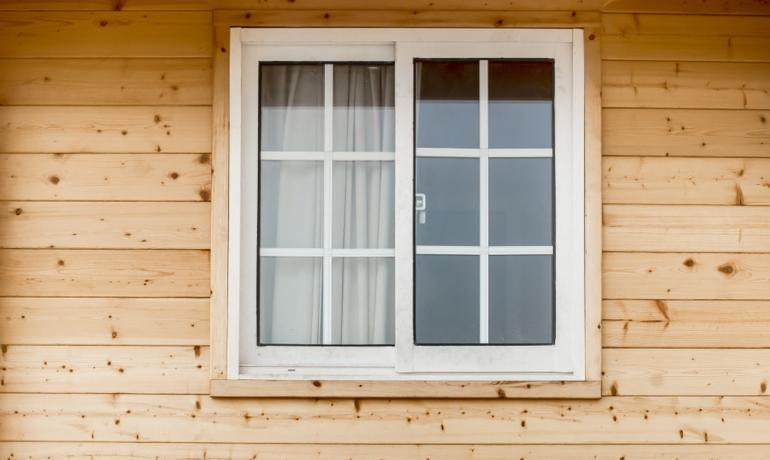
Posted February 29, 2024
When considering the benefits of either residential or commercial window tinting, it's essential to understand how it works and the advantages it offers.
How can UV Window Film help you save energy and prevent fading?
Energy Efficiency:
- UV and IR blocking window films enhance energy efficiency by reducing heat transfer through windows.
- UV Radiation Blocking: These films block a significant portion of UV radiation, which contributes to heat gain. By reducing UV radiation, the film decreases heat entering your space, thus lessening the load on your cooling system and lowering energy consumption.
- IR Radiation Blocking: These films reduce the transmission of infrared radiation, particularly IR-A and IR-B, which carry the majority of solar energy. By limiting heat transfer, they help maintain a comfortable indoor temperature and decrease the need for cooling, resulting in energy savings.
Furniture Fading Protection:
- UV and IR blocking films effectively protect your furniture and interior elements from fading.
- UV Radiation Blocking: UV-blocking window films significantly reduce UV rays' transmission, minimizing fading and degradation of fabrics, carpets, wood, artwork, and other materials.
- IR Radiation Reduction: By blocking IR radiation, these films provide additional protection against heat-induced fading and deterioration of your furniture and interior finishes.
Selecting UV and IR Blocking Window Films:
- Consider factors such as UV and IR rejection, visible light transmission (VLT), and professional installation for optimal performance.
- UV and IR Rejection: Choose films with high UV and IR rejection capabilities to maximize protection.
- Visible Light Transmission: Balance energy efficiency and natural light levels by selecting films with the desired VLT.
- Professional Installation: Ensure proper installation to achieve the film's full potential and longevity.
Preserving Heat:
- Solar films help preserve heat within a space by reducing heat loss through windows.
- Thermal Insulation: These films provide thermal insulation by acting as a barrier, limiting heat transfer through windows and maintaining a stable indoor temperature.
- Heat Retention: Solar films with low-emissivity (low-E films) coatings reflect radiant heat back into the room, enhancing heat retention and reducing reliance on heating systems.
- Solar Heat Gain Control: By reducing solar heat gain, these films contribute to heat preservation and energy efficiency, leading to potential energy savings.
Glare Reduction:
- Glare reduction films offer numerous benefits in environments prone to excessive brightness.
- Improved Visual Comfort: These films enhance visual comfort by reducing the intensity of bright light sources and minimizing contrast between light and dark areas.
- Enhanced Productivity: By creating a glare-free environment, these films promote better concentration, leading to increased productivity and performance.
- Energy Efficiency: Glare reduction films enable better control of interior lighting, reducing reliance on artificial lighting and contributing to energy savings.
Preserve Natural Light:
- Achieve a balance between fade and heat control while preserving natural light with suitable window films.
- Visible Light Transmission (VLT): Choose films with high VLT to maintain a bright and visually pleasing environment.
- Selective Spectral Filtration: Select films that filter out UV and IR radiation while allowing visible light to pass through, preserving natural light while controlling fading and heat.
- Professional Advice: Consult with a window film professional to find the most suitable film for your specific requirements, considering factors like climate and orientation of windows.
Easy Installation:
- Professionally installed window film is generally non-disruptive, offering numerous benefits with minimal inconvenience.
- Experience and Expertise: Professional installers ensure efficient and effective installation, minimizing disruption to occupants or daily operations.
- Minimal Noise and Disturbance: Window film installation involves minimal noise and disturbance, making it suitable for residential and office settings.
- Efficient Process: Installers work diligently to complete the installation in a timely manner, ensuring a hassle-free experience for occupants.
- No Structural Changes: Window film installation does not require structural modifications, eliminating disruption associated with construction or remodeling.
- Clean and Tidy: Professional installers maintain cleanliness throughout the installation process, leaving the space neat and tidy upon completion.
Conclusion
In conclusion, window tinting offers a wide range of benefits, from energy efficiency and furniture protection to glare reduction and preservation of natural light. By understanding how window tinting works and selecting the right films for your specific needs, you can enhance comfort, improve energy efficiency, and protect your interiors effectively. For professional advice and installation, consider contacting Atlantic Sun Control in Manassas, Virginia, for a seamless experience and optimal results.
Back to Main |
Share

